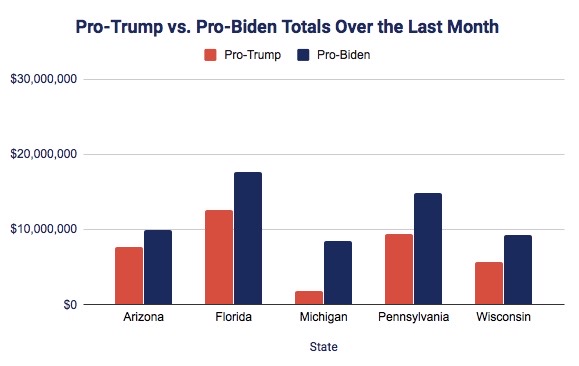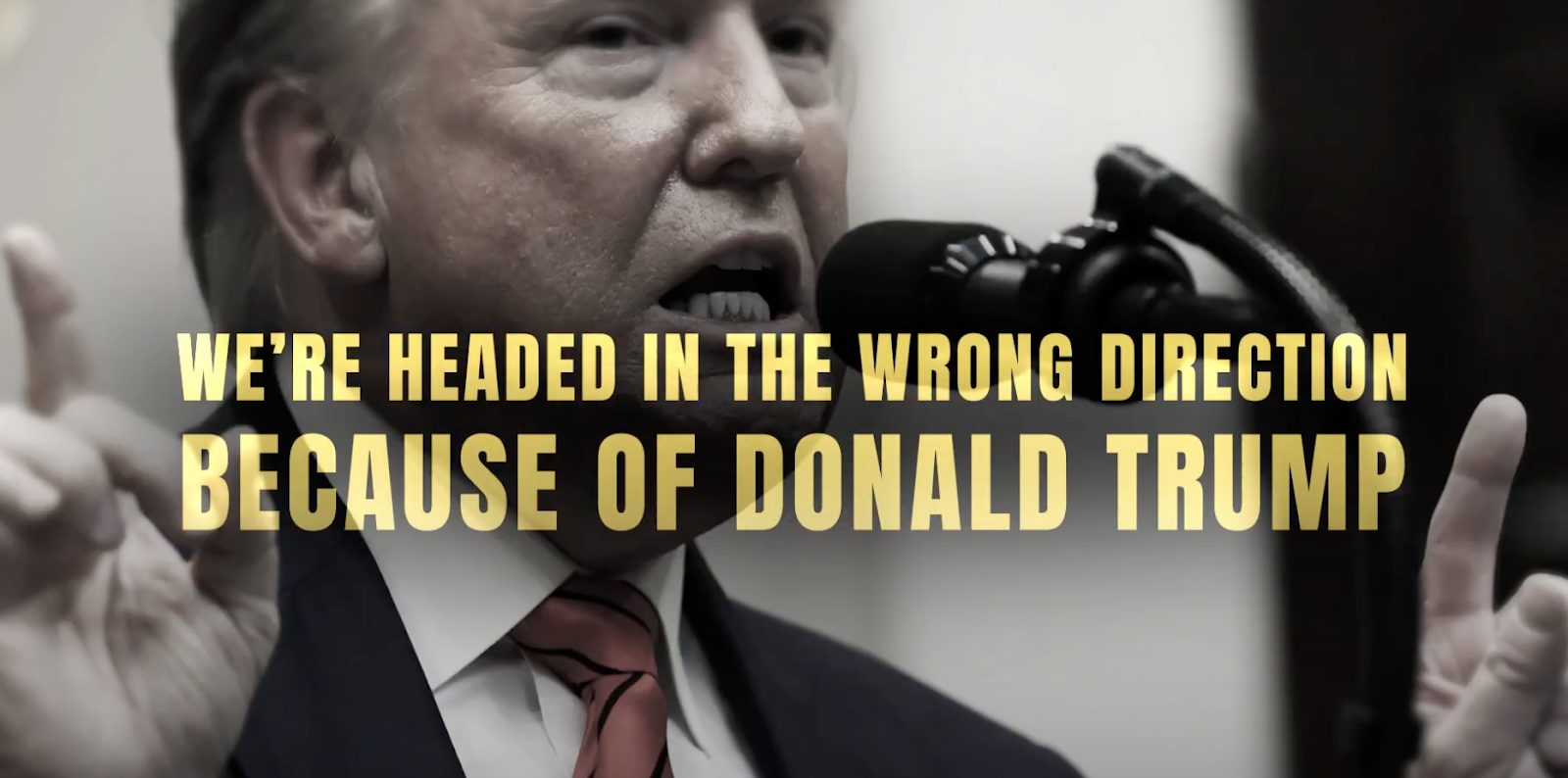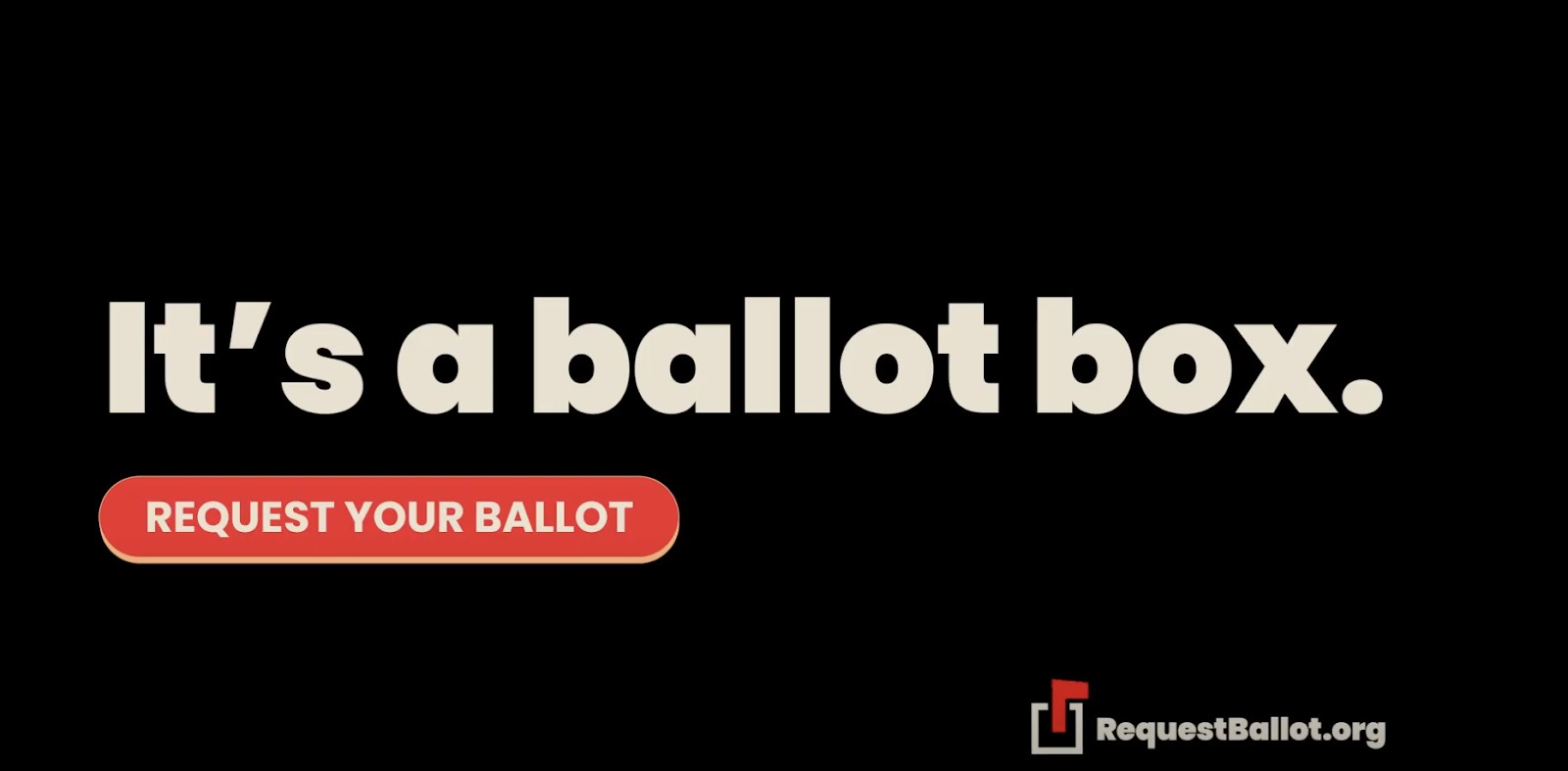Battleground Bulletin: Trump won’t stop politicizing the pandemic. That’s going to end badly for him.

Trump won’t stop politicizing the pandemic. That’s going to end badly for him.
Whether he’s pretending the pandemic is over or meddling with vaccine production, voters don’t trust Trump on the coronavirus crisis.
If you watched the Republican National Convention this week, you may have wondered whether you somehow slipped into an alternate reality — one where the country wasn’t living through a devastating, once-in-a-century pandemic and devastating economic fallout.
The event’s programming would have been your first cause for concern, with distressingly few mentions of the coronavirus from the podium, even less discussion of any proactive plan to address the ongoing crisis, and certainly no recognition of the more than 180,000 American lives that have been lost to the virus so far. Some Trump administration officials even started talking about the pandemic in the past tense.
And somehow, the optics were even worse: large crowds congregated in close proximity to cheer on speeches from politicians who should know better, with few masks and no consistent testing protocol in sight. It was like watching a multi-day superspreader event broadcast on national television.
But no amount of wishful thinking and propaganda pushing from Donald Trump and his Republican allies can change reality: the coronavirus crisis hasn’t gone anywhere. They know it. The American people know it. Perhaps that’s why the president has been desperately pressuring government scientists to endorse unproven treatments, change testing guidelines and short-circuit the testing process for a coronavirus vaccine.
The reality is, Trump’s not fooling anyone. And as we’ve seen over and over again since this crisis began, there’s a high likelihood that these latest attempts to put his personal political interests ahead of public health — from pathetically pretending the pandemic no longer exists to overriding experts and mucking up the vaccine development process — will blow up in his face.
Trump may be pretending the coronavirus is over, but Americans know better.
While Trump and his team may have convinced themselves that the coronavirus has magically disappeared, the American people don’t share that rosy assessment. Quite the opposite, in fact.
According to a recent poll from Axios and Ipsos, an overwhelming 84% of respondents remain concerned about the coronavirus outbreak, with more than half (59%) saying they are extremely or very concerned. Consistent with those apprehensions, two-thirds reported that they continue to view returning to their pre-pandemic lives as a risk.
The general state of anxiety shouldn’t be particularly surprising, considering how many people have had family, friends and acquaintances touched by the virus, often with tragic results. In that same poll, 58% said they know someone who has tested positive for coronavirus, while nearly a quarter know someone who has died. For so many Americans, this has become personal.
And most voters just don’t seem to have much confidence the situation will improve any time soon. A large majority (54%) believe “the worst is yet to come” on the pandemic, according to a recent Navigator survey, with only 28% saying they think the worst is behind us.
With such a dour outlook, it’s no wonder that Politico and Morning Consult found that voters oppose Trump’s attempts to push past the public health aspects of the pandemic and dismantle social distancing guidelines, with respondents saying it’s more important for the government to address the spread of the virus than the economy by a massive margin of 37 points, 65% to 28%.
So the president and his advisers can talk about the pandemic in the past tense all they want. But as a whopping six in ten voters continue to disapprove of Trump’s disastrous handling of the coronavirus crisis and say the administration isn’t doing enough in its response, it’s clear that the American people simply have no interest in joining them in fantasyland.
Trump’s foolish rush to approve a vaccine for political purposes will backfire.
Since Trump hasn’t convinced the electorate to buy into his blanket denialism, he seems to believe his next best option is to rush out a vaccine (any vaccine!) and declare victory over the virus before Election Day, in hopes it will salvage his political prospects.
But as with most things, the president’s judgment here appears to be lacking. Beyond the fact that the regulatory approval will be just the first step on a long road to actually producing and distributing enough doses to provide widespread immunity, there appears to be little appetite among the public for a mad dash to rush out a vaccine that may not have been fully and rigorously tested for both safety and efficacy.
Unlike Trump, who has floated baseless conspiracy theories that the FDA is trying to slow down vaccine development to hurt him politically, voters are much more worried that the process will move too fast. According to Navigator, roughly six in ten say they are more concerned that we will go too far in pushing to develop a vaccine too quickly that ends up being unsafe or ineffective, compared to only 24% who said they are more concerned we will be too cautious and slow. Meanwhile, Politico and Morning Consult reported that approximately two-thirds of voters believe the United States should prioritize fully testing any coronavirus vaccine, even if that requires delaying making it available to Americans.
In reality, Trump’s continued attempts to insert himself into the process may be what makes voters most nervous. Sixty-two percent say Trump should stay out of the development and distribution of a vaccine and leave it to the scientists and public health experts instead, according to Navigator, while only 23% preferred for the president to get more involved in the process in an attempt to produce quicker results.
The public’s distrust of Trump on coronavirus could have serious public health consequences.
When it comes down to it, most Americans simply don’t trust anything that comes out of Trump’s mouth about the pandemic — and that could have serious consequences for the public’s willingness to take any forthcoming vaccine that’s seen as tied to his administration.
After months of downplaying the threat, spreading mountains of misinformation and politicizing the government’s response to the crisis, the president is no longer a credible messenger on the topic. Nearly seven in ten Americans told Axios and Ipsos that they put little or no trust in Trump to provide accurate information on coronavirus, with more than half (51%) saying they don’t trust the president “at all.”
It’s not surprising that general distrust of the president would extend into wariness of any vaccine with his imprimatur. More than 60% of Americans view taking a first-generation coronavirus vaccine as soon as it becomes available as a moderate or large risk, while only 14 percent say they would be more likely to take a vaccine if Trump recommended it. For comparison, voters were three times more likely to trust a vaccine recommendation from Dr. Anthony Fauci.
And as voters turn away from Trump’s track record of failure and dishonesty on this critical issue, they’re turning towards Joe Biden. When asked who they trust to provide them with accurate information about the coronavirus, survey respondents pick Biden over Trump by 15 points. And voters indicate that they’d prefer Biden to oversee the development, testing and release of a coronavirus vaccine by a similar double-digit margin.
The American people are clearly ready for a steady leader they can trust. A leader who will listen to experts. A leader who will finally put their health and safety above their own self-interest.
They’re ready for a leader like Joe Biden.

Donald Trump isn’t on defense. He hasn’t gone on the offensive, either. The Trump campaign simply isn’t moving at all.
With 65 days before the general election, the Trump campaign has gone completely dark on TV (save for their usual “keep the boss happy” spending in DC). While the Trump campaign is set to resume robust TV spending as Election Day draws even closer, their absence from the airwaves so soon before the first ballots are cast leaves Joe Biden alone in battleground states to make his case to voters.
Priorities USA Action continues to spend almost $2 million every week in battleground states on TV and digital advertising. Priorities also recently announced, along with Senate Majority PAC, an investment of $7.5 million in digital ads specifically advocating vote by mail, targeting new voters and voters that have only recently voted in person.
Over the last month, pro-Biden entities have consistently outspent pro-Trump entities in battleground states:


While Joe Biden Leads, Donald Trump Fans the Flames of Hate

Donald Trump’s speech to the RNC Convention proved yet again that he is living in his own reality. Six months after this crisis began, he is still failing to stop the spread of COVID-19 or provide meaningful relief to the millions of Americans struggling to keep food on the table. “Fanning The Flames” holds Donald Trump accountable for his failed leadership and tells battleground state voters the truth about the chaos his administration has caused.
Donald Trump’s Recklessness is Failing Parents
A registered Republican, Darlene shared her story in battleground states during the Republican National Convention. In “Life and Death,” Darlene, a mom and nurse, can’t ignore Trump’s incompetence and mishandling of the COVID-19 crisis. She won’t be supporting his chaos in November.

ICYMI: Priorities USA Launches Multimillion-Dollar Vote By Mail Campaign
Because of Donald Trump’s inability to contain the coronavirus pandemic, more voters than ever are looking for a way to cast their ballot without leaving their home. In partnership with Senate Majority PAC, Priorities USA has launched a $7.5 million ad campaign in presidential and Senate battleground states encouraging voters to request their mail-in ballots as early as possible.
“This Isn’t a Mailbox” is one of the many digital ads that will run as part of the program.
